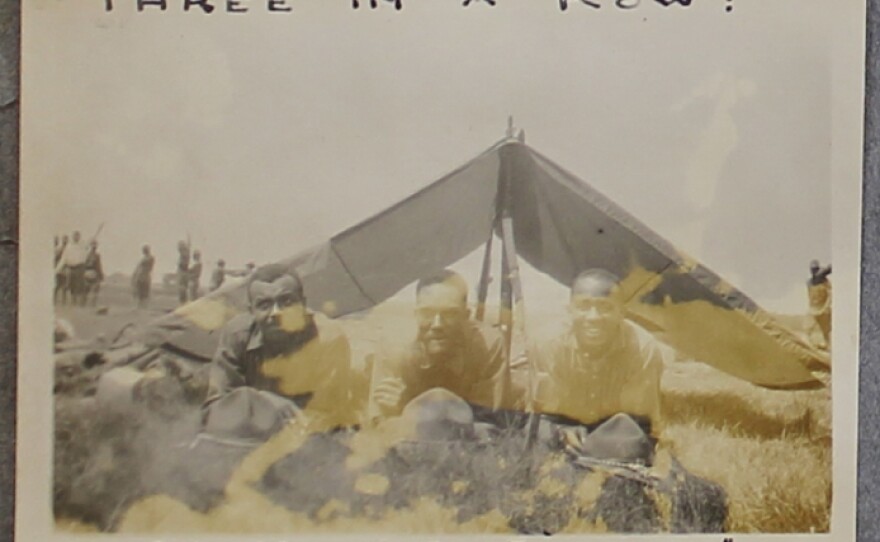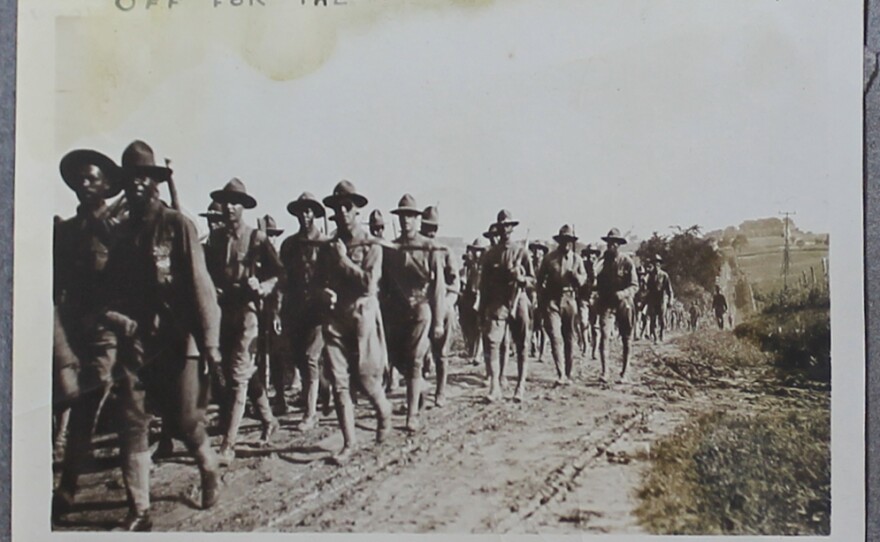Nearly 100 years after the Army's first black officers' training program debuted in Iowa, dozens of old photographs have been discovered showing what life was like when Fort Des Moines was gearing up for World War I.
The country's oldest African American fraternity returned to its early roots this month when the Fort Des Moines Museum welcomed members of Alpha Phi Alpha in remembering their brothers from generations ago. In 1917, the national fraternity helped recruit black college students to become officers, and a racial barrier was broken.

"People do not know the story of Fort Des Moines black officers training camp and the legacy, because they went back to all these different communities and they became, if you will, civil rights advocates," says Hal Chase, a historian who serves on the museum board.
It began here. Over a thousand men were trained as soldiers and leaders and army doctors; 639 were commissioned as lieutenants and captains. One of the Alpha brothers was Cornell University student Victor Daly, who arrived in Des Moines by train, in June 1917.
"He was one of a few guys that actually must have brought his camera during training and he took pictures of him and his buddies in training and we have never seen all this kind of stuff before," says Jack Lufkin, the museum curator.
He says Daly's photo album is held at Cornell. He learned of it last month.
"A lot of them they're kind of clowning around with his buddies, you know, and he's got them handwritten, like old Polaroids or something."

Among the hundred pictures: a cadet takes aim with his Springfield rifle with a written warning, "Look out! Kaiser Bill." A Sergeant Major sits on the dormitory steps smoking a cigar. We see troops in the field having chow, marching in the mud, and laughing as they form a human pyramid. Daly's black and white photos were digitized and sent to the computer of museum administrator Paul Bridgford.
"And I opened it up and it was a treasure trove of training shots," he said. "We're just wondering how many more scrapbooks there are at other colleges."
The Daly collection was discovered by Broderick Daye, an Alpha member from Des Moines.
"I think it's definitely important for the history of Fort Des Moines, it just makes us proud and we're excited about this," Daye says.
Notable Alpha Phi Alpha brothers include Martin Luther King, prominent NAACP executives, sports figures Jesse Owens and Jack Trice, and now, photographer Victor Daly. The fraternity this month dedicated a new banner at the museum featuring two of his snap shots. Incredibly, the museum has a 1975 recording of Daly's voice, in which he talks about the import role Fort Des Moines played in the later integration of the armed forces in World War II.

The New Yorker, who brought his camera to Fort Des Moines, was interviewed by historian Hal Chase, who spins a passionate story about the fort's early role in scaling racial barriers.
"Proud that it happened in Iowa and the connection of that to leadership in what we know and call the modern civil rights movement," Chase says. "People are going to say this is not a flyover place where nothing happened, a lot started here."
The gold mine of historic photos comes as officials work to revitalize the museum. The old prints will be presented in upgraded exhibits and a new documentary, just in time for the centennial of America's entry into World War I, when Iowa-trained black officers fought, and died, for their country.














